Figure 3: Partial tail loss due to ringtail in two 10-week-old female rats (Story and Nubs).
Case history and photos
History
Story (black self) and Nubs came from a small in-home rescue at the age of approximately 7 weeks old; where they had been kept in a wire cage, in an unfinished basement, with their mother and several other young female rats. Both were runts of a rather large litter, and did not get as much nutrition and moisture from their mother as needed.
Clinical Signs
Observed shortened tails (to right above the fuzzy fur line of the tail) with nubby ends.
Nubs had a rounded piece of the tail (shaped like a ball) at the very end, which occasionally oozed or bled slightly, but did not bother her. This rounded piece of the tail fell off at approximately 10 weeks of age.
Diagnosis
Ringtail
Treatment
While at the in-house rescue they applied Olive Oil to their tails for the first few weeks but had stopped doing that.
No additional treatment was initiated except to observe, keep environment clean, and allow the ends of the tails to heal on their own.
Follow-up
Continued care consisted of keeping the girls in a clean environment, with their cagemates, on Care Fresh bedding and keeping humidity in normal limits in their environment.
Outcome
The stubby tails of both girls are healing well, and they do not seem bothered by this impairment at all. They love to climb but do tend to have some balance issues, and fall more often than any of the other rats.
Photos
The photos below show the progression of ringtail in the rat, Nubs.
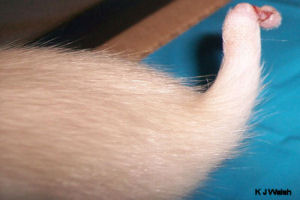 Photo 1: |
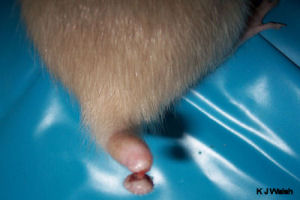 Photo 2: |
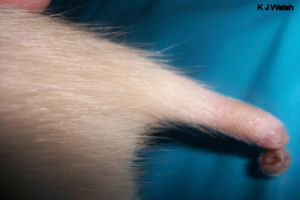 Photo 3: |
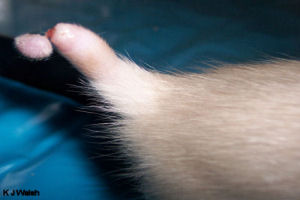 Photo 4: |
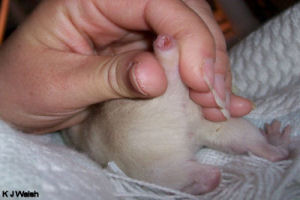 Photo 5: |
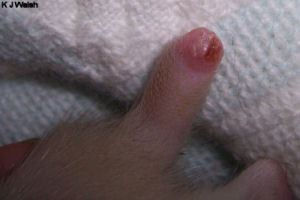 Photo 6: |
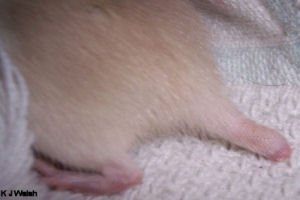 Photo 7: |
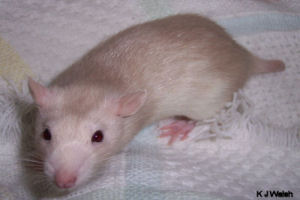 Photo 8: |
Photos below show healed ringtail in the black self rat, Story.
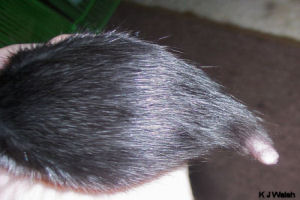 Photo 1: |
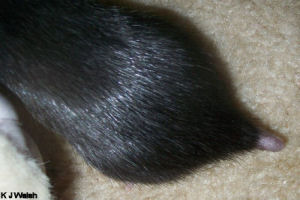 Photo 2: |
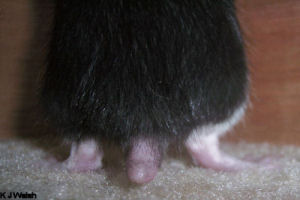 Photo 3: |
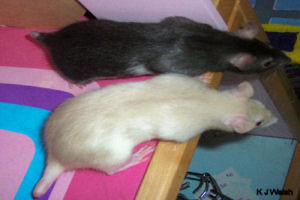 Photo 4: Healed tails in both female rats |
Case history and photos courtesy of Kelly J Walsh


